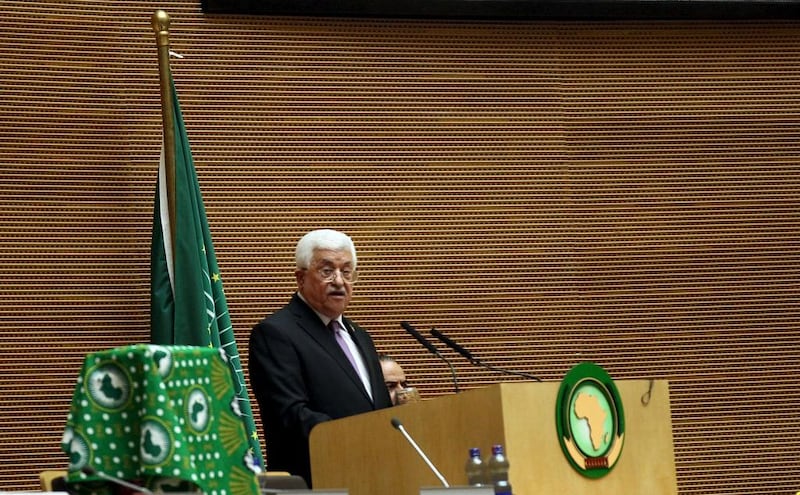Colonial regimes have long understood that the most effective way to administer territory is for the locals to control themselves. From India to Brazil, western colonialists have historically created governing infrastructure that allowed the natives a high degree of self-governance, as long as they maintained the interests of the invading power. This exploitative model is not confined to the history books: a version is flourishing in the West Bank today.
Since its creation as an interim self-governing body after the 1994 Oslo peace accords between Israel and the Palestine Liberation Organisation, the Palestinian Authority has managed the West Bank with a non-transparent quasi-government that operates in close coordination with Israel and America. Traditionally, colonial regimes lavish a select group of natives with wealth and privilege in exchange for them controlling their own people. In practice, this is how the PA now operates.
Visualizing Impact, a Beirut design studio that blends data science and graphic design to create easy to digest infographics for social media, just released a graphic highlighting the ways that the PA keeps Palestinians occupied. According to the new graphic, the PA spends as much on its security apparatus as it does on education and health care combined. The PA does not control its own borders or airspace, so its security budget is mostly spent patrolling the streets of Palestinian enclaves and arresting Palestinians at Israel's behest or those organising protests against PA president and PLO chairman Mahmoud Abbas.
Since 2005, the United States, the European Union, Israel and Jordan have trained a PA paramilitary force with the goal of having Palestinians suppress other Palestinians. In the mid-2000s, the project was directed by US general Keith Dayton.
According to the 2011 Palestine Papers, Gen Dayton’s mission was to train a Palestinian military force that would cooperate with Israel. While he achieved that objective, he also created a force that has been accused of torturing Palestinians for dissent against the PA’s leadership. Today, Gen Dayton’s forces arrest rank-and-file Palestinians accused of challenging the PA’s rule on a regular basis.
During the recent months of Palestinian stabbing attacks and fresh Israeli assaults in the West Bank, the PA’s intelligence chief Majid Faraj said his forces had detained well over 100 Palestinians. The intelligence chief also implied that the PA was working closely with Israel to prevent the collapse of the PA, evidence that Gen Dayton’s mission continues to succeed.
The situation for civil society under the PA is equally dire. In 2014, there were 90 recorded PA abuses of press freedom, which included the imprisonment, harassment and beatings of several Palestinian journalists. Non-violent protests in front of the PA buildings have been routinely broken up with force and activists have been arbitrarily detained. According to the International Crisis Group, up to 10,000 Palestinians were detained by Mr Abbas’s forces between 2007 and 2010 for alleged support of rival organisations such as Hamas. There have also been crackdowns on social media criticism of Mr Abbas. In 2013, at least two people were jailed for sharing attacks of Mr Abbas on social media.
The situation in Gaza under the Hamas government is equally horrifying, but the dynamics of Israel’s control manifest differently in Gaza. Since Israel removed its settlements in Gaza but reinforced its military blockade of the coastal strip in 2005, Tel Aviv has been less interested in co-opting Hamas. As such, Hamas has been focused on its own grip on power. Given Israel’s extensive settlement blueprint in the West Bank, the relationship with the PA is fundamentally different.
The Visualizing Impact graphic quotes chief Palestinian negotiator Saeb Erekat as saying that “we [the PA] have had to kill Palestinians to establish one authority ... we continue to fulfil our obligations”. The quote might be taken out of context but the fact remains that the PA has dutifully fulfilled its obligation to Israel’s security interests in the West Bank while remaining above accountability of the people.
According to the Palestinian Centre for Policy and Survey Research, 67 per cent of West Bank Palestinians say they live in an undemocratic system that curbs the will of the people and their personal freedoms.
Mr Erekat was recently quoted in Defense News as saying that 68 per cent of Palestinians want Mr Abbas to resign. This is hardly remarkable considering Mr Abbas is entering the 11th year of his four-year term. But the PA strongman is 80 years old and has signalled a willingness to step down. Who will fill his shoes?
If the PA is a subcontractor of Israel’s occupation and waves of violence continue to engulf the West Bank, there is little chance that Israel or the United States will allow a truly representative government to take hold in Ramallah. Any change in leadership, in their perspective, will create a security vacuum that necessitates a strongman.
For all the talk that the Oslo peace process is dead, the legacy of the agreement is thriving in the West Bank. If Israel’s intention was to create a native enforcer of its colonial regime, then it has succeeded in the PA. While Israeli leaders and their supporters in America might bemoan the lack of a peace process or the fractured nature of the PA, it is nothing more than a simple diversion, for the PA has been used to serve Tel Aviv’s interests.
jdana@thenational.ae
On Twitter: @ibnezra





